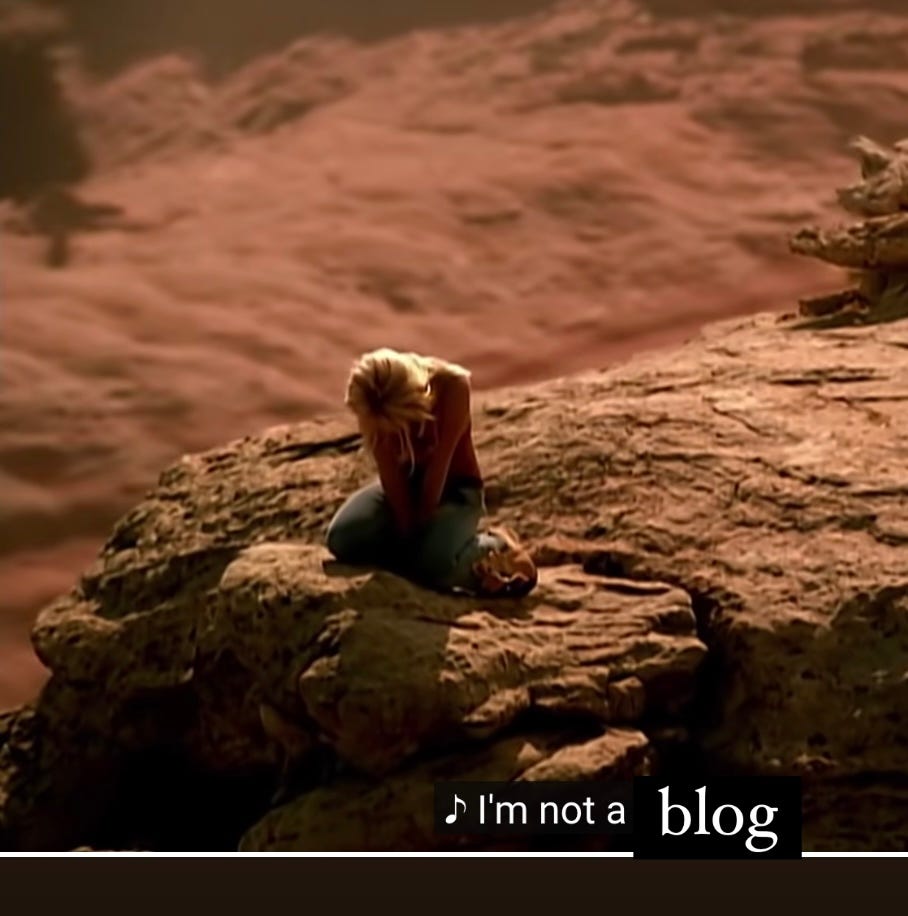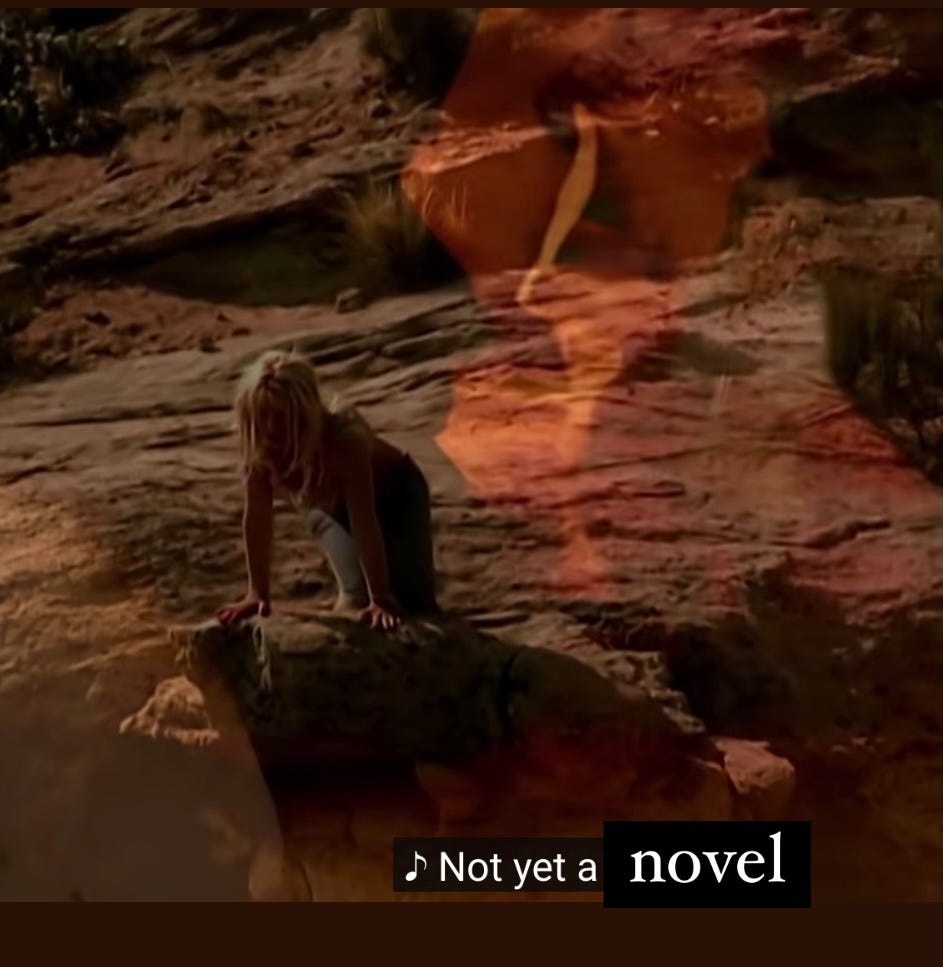No Worries If Not: An Impatience with the Ugliness of Process
I don’t need an audience to perform but I do need one to practice.
Like the overused I’m sorry, or my frequent follow-up maxim You sure??, No worries if not epitomizes Millennial desire to be liked. Certainly there is no shame in wanting to be liked. But we grew up with the Like button, with which we’ve long associated our worthiness, and a forceful global emphasis on individualism, and it has confused things. No worries if not says, Don’t worry about me, I am fine. Don’t worry about a burning planet or systems collapsing. Don’t worry about the toxic alienation social media has enacted, on which we’re now dependent. Don’t worry about connection or prayer. Don’t worry, we are fine.
I started to say No worries if not when I realized I wasn’t a chill person. I thought a version of it when I passed a note to Dale Lintner in 5th grade, which read, “Do you like me? Circle Y/N,” and he, at first, circled No. As an adult, I’ve employed it to prevent conflict. A request that my roommates wash their dishes could be perceived as difficult, controlling, irritating, and who likes a person like that? The same request followed by No worries if not is no longer bitchy. It absolves all parties from digesting the very real stated ask. Previously, at a job: I was hoping the Team could give me time to enact this strategy before imposing restrictions—no worries if not! To my parents, who have not visited me in years. To friends I haven’t seen in a while, who have all but disappeared, whom I’m asking for the third or fourth time to hang. To someone I’ve fallen in love with, who does not reciprocate. No worries. No worries if not.
No worries derives, probably, from Not to worry, as in, You’re not to worry. Do not have distressing feelings about rejection or misunderstanding. Each time I follow a true statement with No worries if not, I’m deceiving myself. It acts like a veil for discomfort or discord. It obfuscates. When I use it, I’m attempting to control someone else’s perception of my stated desires. I’m preemptively muting my own feelings, protecting myself.
In her 1993 book The Dance of Deception: Pretending and Truth-Telling in Women’s Lives, Harriet Lerner analyzes the difference between privacy and secrecy. Secrecy, she writes, “always involves the intention to hide or conceal information from another person, just as lying always involves the intention to convince another of what we ourselves do not believe to be true.” Both privacy and secrecy “reflect the need to create a boundary around the self”—but secrecy “is deliberate concealment that makes a difference” in our relationships. For example, keeping secret that it makes you uncomfortable when a friend comments on your body but resenting them for it each time will change the relationship between you and your friend. It will prevent you from sharing real intimacy, from your relationship growing at all. There is too much nuance to this topic for me to summarize; Lerner herself writes that “when we examine the complexity of real life, this neat distinction between privacy and secrecy collapses.” But it aligns so well with No worries if not, with the compulsive need I have to prioritize the comfort of others over my own feelings. “Women,” Lerner writes, “do not simply exercise the right to privacy out of free choice and on behalf of the self.”
When we say to each other or to ourselves, “This is private; It is my business,” we express a basic and essential human right. But in so doing, we may also preserve lies that oppress us, rather than lay claim to our individual freedom. In the name of privacy, we withhold from each other our honest experience. We fail to know each other and be known. We fail, individually and collectively, to scrutinize the “personal” or private in ways that would challenge us to seek new truths and revise old ones.
(Related but unrelated: this two-part podcast, I’m Sorry: How to Apologize and Why It Matters, between Dr. Harriet Lerner and Dr. Brené Brown is really something. I think about it once a week.)
Anyway, all of this is a preamble to the why I am writing this. It’s the marketing part of my brain at work, attempting to explain the story behind a brand. But this is not a brand or some angelic work of art. It’s very simple to have a fucking ego. I have some things I need to say out loud. These thoughts are more refined than the repetitive bitching of my journal, but they don’t belong in my fiction or poetry. They don’t really belong anywhere. They swarm my brain—blocking, clogging, interrupting. They’re a manifestation of the endless patchwork of information that defines our world, my long-repressed need to speak, to process aloud, with witnesses, so that I can call them real and move on. If I don’t do something with them I will explode. Even worse: I might never write the stories I want so badly to write.
I don’t need an audience to perform but I do need one to practice. My struggle to write is a heavy, terrible ache. I carry it with me to the coffee and the job and the walks that comprise my little life. I carry it around hoping some brainiac will notice and tell me what to do. Years ago, when I consumed only wiry plants and ran four miles a day, the thing that made me stop was talking about it, so I am going to talk about not writing by writing about it. I am not going to delude myself. Maybe practicing in front of an audience will stop me from being so fucking lazy. Maybe the overwhelming things won’t feel so impossible, and I will start the car and drive instead of marveling and memorizing what I can see from the window. Instead of therapizing my romantic relationships and those of my friends using, I will analyze my relationship to writing. My problem isn't Can I write a pretty sentence—it’s an impatience with the ugliness of process.
Karen, my first drawing teacher at Parsons, used to tell us to step back and work on the whole thing at once. If in our six-hour studio class any of us stood too close to the easel or scrunched up our arms, she would make us stop and we would get the speech again, about how you can have beautiful details but no real drawing. I wonder how long I’ve thought of beauty as the details of a finished product. This isn’t to say that detail doesn’t matter, but detail out of context is boring, just as beauty out of context no longer vexes me. Josh touched on this concept in The Craft of Fiction, the required course for our MFA in which we read 8-10 stories per week and completed corresponding writing exercises (which I still think of as a kind of hazing): Michael Cunningham’s A sentences and B sentences—“not every sentence can be great but every sentence must be good.” The A sentences vs. B sentences—both of which a story requires— helps me untangle my need for beauty from the practical ugliness of finishing. Work is hard because it requires stillness and process and often no beauty. Stillness is difficult for me because then I notice ugliness, and I can’t stand ugliness. When I pick a zit it’s me scratching at ugliness. When I am impatient to fill a perceived hole in my wardrobe, I am refusing process. I’m saying I need beauty now, all the time, both because I’ve chosen to live an aesthetic life, and also because I need, desperately, to be liked. Basically if I do not figure out how to find beauty in the process of work, I will rot and become very ugly to myself, and then how will I live?
Reward motivates me. When I was in pre-school, I wouldn’t pee for some reason. Perhaps I didn’t actually need to pee, or I had decided that not peeing when told to do so was the single form of rebellion I had, but it distressed my mother, who incentivized me with stickers. Each time I peed, I got to select a sticker and place it on the giant poster by the toilet, my ongoing work of art. I became a five-star peer. I am not shy, so I have always found performance to be a kind of reward. When I need to get groceries but don’t want to, I put on a sheer slip and MNZ heels. Expressing myself through clothing despite the constraints of an office environment was the only thing that kept me showing up to my first job. Growing up Italian and Catholic pretty much guarantees an affliction with vanity and obsession with rules (where there are rules, there are rewards (follow the Ten Commandments and you will enter the Kingdom of Heaven)). Our world rewards beauty and always has. Not one of us is immune to it, to ego, but I don’t want to be their slave. I just want to get out of my own way.
Anyway, this is my substack. I am going to use it to say whatever the fuck I want. And I pray that my need/love of beauty/audience is enough to make me work.
I miss tumblr every day 🥀
( music getting me thru )
The four stunning volumes comprising Donna Summer’s Greatest Hits is sadness leaving the body because listening to Donna Summer is dancing for ears, but “Our love” specifically is !
Roll on Babe (1974), Ronnie Lane
A little on this nose with metaphor, but this is my substack and I do what I want.
Mandolin Wind, Rod Stewart with Ron Wind
Who among us hasn’t had the fantasy that a dusty musician would come along and teach us to play guitar? Rod Stewart knows this, and he takes it even further: I never was good with romantic words / So the next few lines come really hard / Don't have much, but what I've got is yours / Except of course, my steel guitar / 'cause I know you don't play, but I'll teach you one day/ Because I love ya






